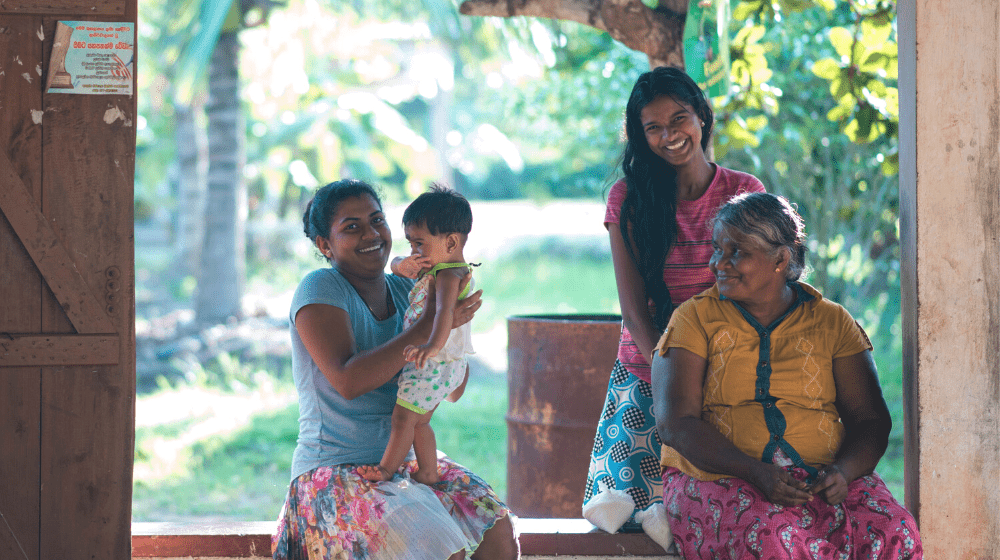Opinion-editorial by Mr. Björn Andersson, UNFPA Regional Director for Asia and the Pacific, on the occasion of the International Day of Older Persons, calling on countries to adopt a life-cycle approach to address population ageing.
From the moment a girl is born, the decisions made at every stage of her life will determine whether she ages with dignity. With the world soon to reach 8 billion people, and with Asia and the Pacific being one of the most rapidly ageing populations in the world, how can countries ensure that future older people, especially women, are able to contribute even more actively towards sustainable development?
Globally, the United Nations declared 2021-2030 as the Decade of Healthy Ageing given the trend of low fertility and the increasing dependent population across the world. In the Asia and Pacific region, one in four people will be above the age of 60 years by 2050, and the majority of them will be women. It is imperative that women lead healthy, meaningful and independent older years so that they can continue to actively contribute to socioeconomic development.
To do so, we must invest in a life-cycle approach with gender equality at its core. This means investing in every stage of a woman’s life, from her childhood, adolescence, reproductive age, into older years, so that she can age with good health, dignity, skills, and the decision-making power to be able to contribute to society at her fullest potential.
Let’s take for example the story of Ana.
When Ana was born 30 years ago, her mother had access to a nearby hospital. As a result, she was able to deliver safely, avoiding complications in her pregnancy and birth. Complications during pregnancy and birth have long-standing health effects on mother and baby, but with access to professional maternal healthcare services, most cases are preventable. As Ana reached her teenage years, she noticed certain changes that adolescents experience. She had learned about life skills during sessions at her school, and was able to develop her understanding and analytical skills to manage the various challenges she may face in life. This was particularly useful as she completed school, pursued a degree in engineering, and got married to her university peer.
Today, Ana works as a consultant at an engineering company. She is happy in her job and is able to provide for her mother as well. Her husband is also working and both of them are financially independent, enjoying a healthy and happy marriage, while actively contributing towards their community and the economy as a whole. Ana hopes to have a baby in two years – a time at which she and her husband will be able to provide their baby with good healthcare, education, and a comfortable home to live in. In 30 more years, Ana hopes to enjoy a happy retirement, while supporting her future daughter to also be able to build a happy life that will pave her way towards healthy ageing.
Unfortunately, Ana’s story is not every woman’s story.
While almost half the world's births occur in the Asia-Pacific region, tragically, in this same region, 10 women die every hour as a result of complications in pregnancy and childbirth, most of them in Afghanistan and Papua New Guinea. Over 140 million women in the region still do not have access to family planning services and information to be able to plan their pregnancies. In addition, the proportion of women reported to have experienced physical and or sexual violence by an intimate partner are high - ranging from 11 percent in Indonesia to 64 percent in Fiji and the Solomon Islands. While over half the world’s 1.8 billion adolescents and youth live in Asia and the Pacific, most of these young people do not have access to comprehensive sexuality education to be able to make informed decisions and choices about their body.
As the United Nations sexual and reproductive health agency, UNFPA strives to ensure that every pregnancy is wanted, every childbirth is safe, and every young person’s potential is fulfilled. By achieving this, countries can prepare for a healthy aged population, where women are able to fully contribute towards socioeconomic growth. This paves the way towards realizing the Programme of Action of the International Conference on Population and Development, which stipulates that fulfilling the rights of women and girls is central to development.
Just like Ana, every woman must have equal opportunity to develop her skills, realize her dreams, contribute towards the workforce, and be empowered to make decisions about her own marriage and pregnancy. Then, her children too can grow up in a world where they are empowered to make informed choices and decisions about their body and life.
This is why we are urging policy makers across the region to work together with academia and civil society to ensure national development plans, policies, and efforts place the rights of women and girls at its center. Investing in every stage of a woman’s life - from birth to adolescence to adulthood - is crucial to provide a solid foundation for her to age with dignity. If countries are to reap the advantages of population ageing, an intergenerational life-cycle approach is essential as it ensures healthy and active ageing for generations to come, thereby contributing towards sustainable development across Asia and the Pacific, and beyond.



